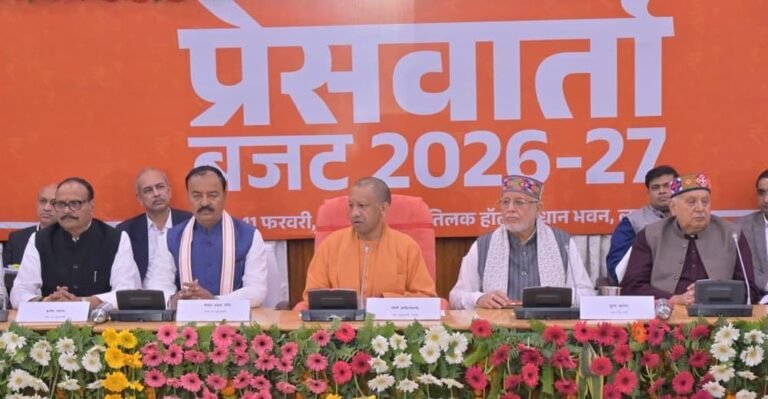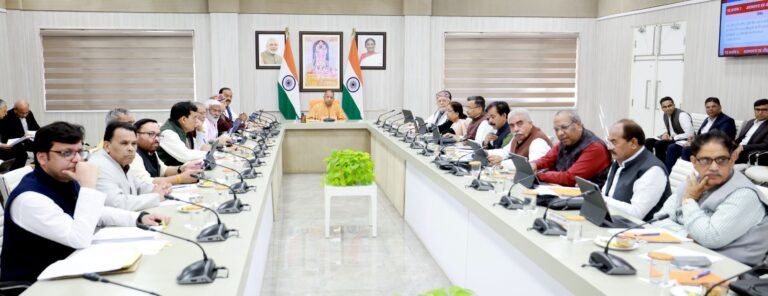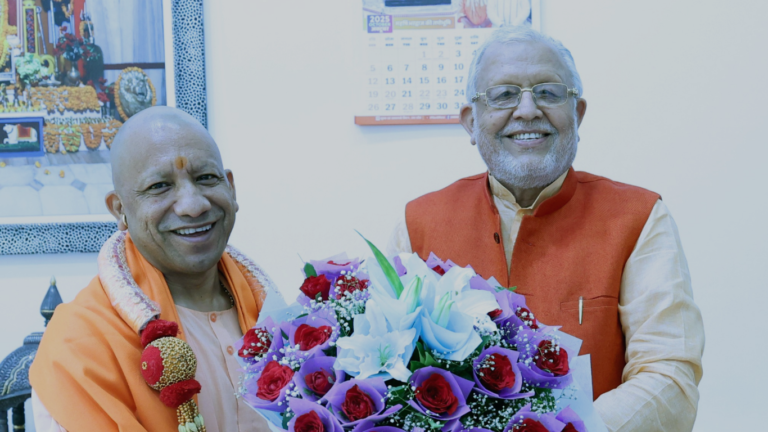
In 2019, Amethi, a key Lok Sabha seat in Uttar Pradesh, delivered one of the biggest political shocks in recent Indian history. For decades, this constituency was a stronghold of the Indian National Congress, dominated by the Gandhi family. But on May 23, 2019, BJP’s Smriti Irani defeated Congress leader Rahul Gandhi by 55,120 votes, ending the Gandhi family’s grip on Amethi. This result wasn’t just a local win—it signaled a shift in India’s political landscape, showing the BJP’s growing strength even in Congress bastions. With 1,743,515 voters and a 54% turnout, the election was fiercely fought, with Irani securing 468,514 votes and Gandhi getting 413,394. Below, we dive into what made this upset possible, the reactions it sparked, and what it means for Amethi’s future. As we look back in June 2025, this moment remains a turning point worth revisiting.
The Fall of a Congress Stronghold
Amethi has long been tied to the Gandhi family, with Sanjay, Rajiv, Sonia, and Rahul Gandhi representing it since 1980, except for brief interruptions in 1977 and 1998. Rahul Gandhi held the seat from 2004 to 2014, winning comfortably each time. But in 2019, Smriti Irani, a BJP leader and former TV star, turned the tables. She polled 49.7% of the votes, while Gandhi managed 43.9%. The result stunned many, as Amethi was seen as untouchable for Congress. Irani’s win came after years of groundwork in the constituency, where she built connections with voters and highlighted local issues like unemployment and poor infrastructure. The BJP’s strong campaign, backed by Prime Minister Narendra Modi’s popularity, also played a big role. This defeat was a blow to Congress, raising questions about Rahul Gandhi’s leadership and the party’s future in Uttar Pradesh.
Smriti Irani’s Relentless Campaign
Irani’s victory was no fluke. She had contested against Rahul Gandhi in 2014, losing by 107,903 votes but earning respect for her fight. Between 2014 and 2019, she stayed active in Amethi, visiting villages, meeting locals, and criticizing Gandhi for neglecting the constituency. Her campaign focused on development, promising better roads, schools, and jobs. Irani’s speeches, often fiery, resonated with voters frustrated by Congress’s long rule. She also leaned on the BJP’s national appeal, tying her campaign to Modi’s vision. Her hard work paid off, as voters saw her as a dedicated leader compared to Gandhi, who was accused of being an absent MP. This grassroots effort made her a “giant killer” in 2019.
Rahul Gandhi’s Struggles in Amethi
Rahul Gandhi’s defeat was a wake-up call for Congress. Despite his family’s legacy, voters felt disconnected from him. Critics pointed out that Gandhi spent little time in Amethi, focusing more on national politics. His campaign relied heavily on the Gandhi name, but that wasn’t enough in 2019. The BJP painted him as an out-of-touch leader, and Irani’s attacks on his absence hit home. Gandhi also faced challenges from the BJP’s strong organizational machine and Modi’s wave of popularity. His loss in Amethi, a seat Congress held for decades, hurt his image as a leader. Though he won in Wayanad, Kerala, the Amethi defeat became a symbol of Congress’s declining influence.
Public Reaction and Political Fallout
The Amethi result sent shockwaves across India. On social media, especially X, reactions poured in. BJP supporters celebrated Irani’s win, calling it the end of “dynasty politics.” Posts like “Amethi says no to Rahul Gandhi” trended, with some claiming Irani’s victory marked a new era for the constituency. Congress workers were stunned, with many blaming Gandhi’s weak campaign. Political experts called it a historic upset, noting that Amethi’s fall showed the BJP’s ability to challenge Congress even in its safest seats. The result also sparked debates about the Gandhi family’s relevance in modern politics. For Amethi’s voters, the election was about choosing development over loyalty, a message that echoed beyond Uttar Pradesh.
Jubilation Among BJP Supporters
BJP workers erupted in joy when Irani’s win was announced. In Amethi, celebrations included fireworks and rallies. On X, posts hailed Irani as a fighter who ended Congress’s “feudal rule.” One user wrote, “Smriti Irani has shown that hard work beats privilege.” Modi and other BJP leaders praised her, with Modi tweeting that her victory was a triumph of democracy. Irani herself thanked voters, promising to work tirelessly for Amethi. The win boosted the BJP’s morale, as it showed their strategy of targeting Congress strongholds was working. For many, Irani’s rise from a 2014 loser to a 2019 winner was inspiring.
Congress’s Soul-Searching Moment
Congress was left reeling after the Amethi loss. Party leaders admitted the defeat was painful, with some calling for a rethink of their strategy. Rahul Gandhi accepted responsibility, saying at a press conference that he respected the voters’ choice. But behind closed doors, Congress faced tough questions. Why had they lost a seat they held for so long? Was Gandhi’s leadership hurting the party? The loss fueled criticism of Congress’s reliance on the Gandhi family. Some workers felt the party needed fresh faces to take on the BJP’s aggressive campaigns. The Amethi defeat became a symbol of Congress’s struggles in 2019, where they won only 52 seats nationwide.
What the Result Meant for Amethi’s Future
The 2019 Amethi result changed the constituency’s political story. Irani’s win brought hopes of development, with promises of new schools, hospitals, and jobs. But it also raised questions about whether the BJP could deliver where Congress had failed. For voters, the election was a demand for accountability, showing that no seat was “safe” anymore. The result also weakened Congress’s hold in Uttar Pradesh, a state with 80 Lok Sabha seats. Looking back in 2025, Irani’s 2019 victory set the stage for the 2024 election, where she lost to Congress’s Kishori Lal Sharma. Yet, the 2019 upset remains a landmark, proving that even the strongest political dynasties can fall when voters demand change.
A Shift in Voter Priorities
Amethi’s 2019 voters sent a clear message: development matters more than legacy. Many felt neglected under Congress, with issues like poor roads and unemployment lingering. Irani tapped into this frustration, promising a new Amethi. The election showed that voters were willing to look beyond family names and reward hard work. This shift reflected a broader trend in India, where the BJP’s focus on development and nationalism appealed to younger voters. Amethi’s result became a case study in how grassroots campaigns can overturn decades of dominance.
The Road Ahead for Congress
For Congress, the Amethi loss was a call to rebuild. The party needed to reconnect with voters and address local issues. Rahul Gandhi’s decision not to contest Amethi in 2024, opting for Rae Bareli instead, showed the party’s caution after 2019. Congress fielded Kishori Lal Sharma, who won in 2024, proving they could reclaim Amethi without a Gandhi. But the 2019 defeat remains a lesson: no constituency is guaranteed, and Congress must work harder to regain trust. The Amethi result pushed the party to rethink its approach in Uttar Pradesh and beyond.



